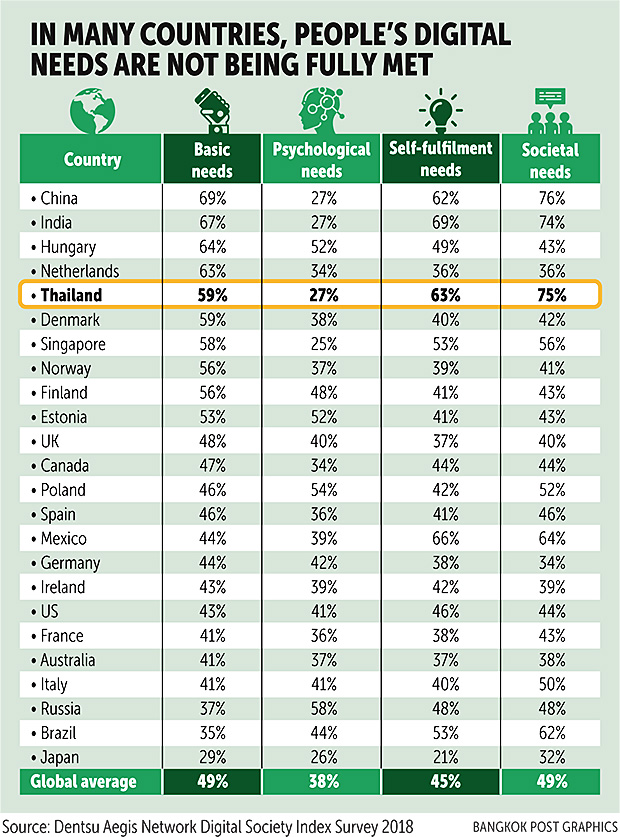Thailand: Poll reveals mixed views on digital economy
Although people in high-growth, emerging economies are positive about their future in the digital economy, they don’t feel like their digital needs are being met, says a survey by Dentsu Aegis Network.
Those surveyed said they did not feel optimistic about the impact of digital technologies on health and well-being, or their ability to access skills that are needed to thrive in a rapidly changing labour market.
Tim Andree, executive chairman and chief executive of Dentsu Aegis Network, calls the digital economy the defining trend of our time.
“Thirty years on from the establishment of the World Wide Web, the legacy of that breakthrough is extraordinary,” he said. “The proliferation of digital technologies has powered economic growth, created jobs, lifted millions out of poverty, put information into the hands of people the world over and grown access to cheaper products and services.
“It’s hard to imagine a facet of everyday life that has not in some way been touched by digital. For people, businesses and society as a whole, it has been a massive source of growth.”
In 2017, Dentsu Aegis Network established the Digital Society Index. The analysis recognises that the digital economy has been a hugely positive source of change and that securing these benefits in the future requires a longer view of how technological innovation can best serve people’s needs.
“Today, we also see the emergence of new digital consumers,” Mr Andree said. “They are digital natives and use digital products and services across a range of activities. But they’re also digitally savvy and have learned to manage the online world on their own terms: limiting the amount of data shared and time spent online; installing ad blockers; deactivating social media accounts.”
According to the research, digital technologies can enable us to be more connected, more creative and more human. But much of this potential remains untapped. In the rush to expand the digital economy, we have neglected to design it around our fundamental needs.
The digital needs model provides a framework around which new strategies can be built: the need to be connected through trusted networks; the need to enjoy a balanced sense of personal well-being; the need to be fulfilled in our work; the need to look positively to the future.
For societal and economic reasons, we must ensure that these needs become the guiding principles for future technological development, researchers said.
Dentsu Aegis Network’s programme of research started in 2017, in collaboration with Oxford Economics.
The latest survey was conducted during July and August 2018, polling more than 43,000 people in 24 countries, including Thailand.
Source: https://www.bangkokpost.com/business/news/1659368/poll-reveals-mixed-views-on-digital-economy


 English
English




